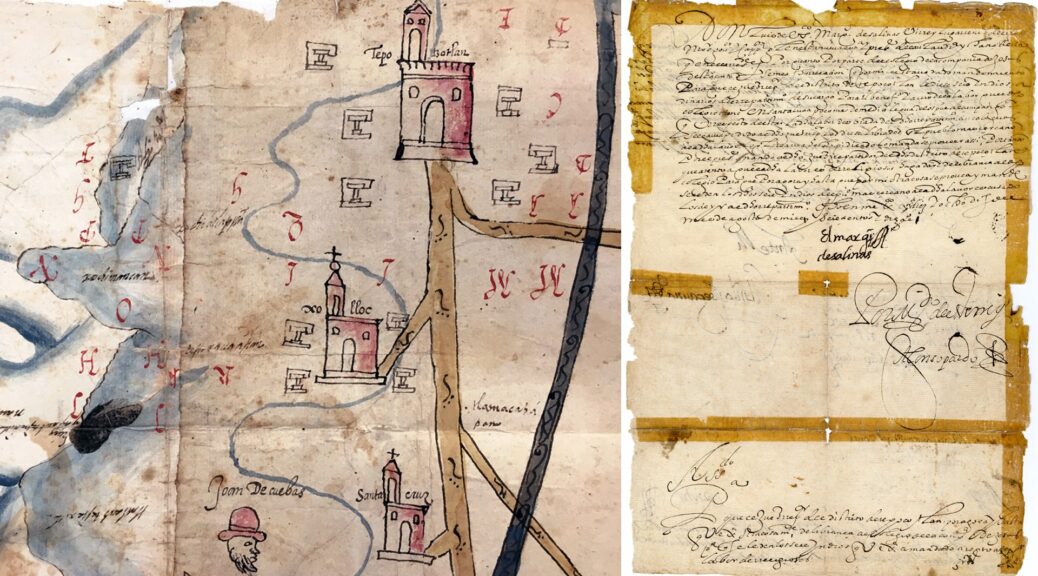By Albert A. Palacios, Jenny Marie Forsythe, and Julie C. Evershed
On September 21, 2019, LLILAS Benson Latin American Studies and Collections and the New Orleans Jazz Museum joined forces to make their colonial collections a bit more accessible. The two institutions led a joint transcribe-a-thon that convened community members in person at the Louisiana Historical Center, and remotely through the Benson Latin American Collection’s Facebook page. Together, participants transcribed handwritten Spanish and French documents from 1559 to 1817, with the goal of making these records more useful to teachers, students, researchers, and family historians.
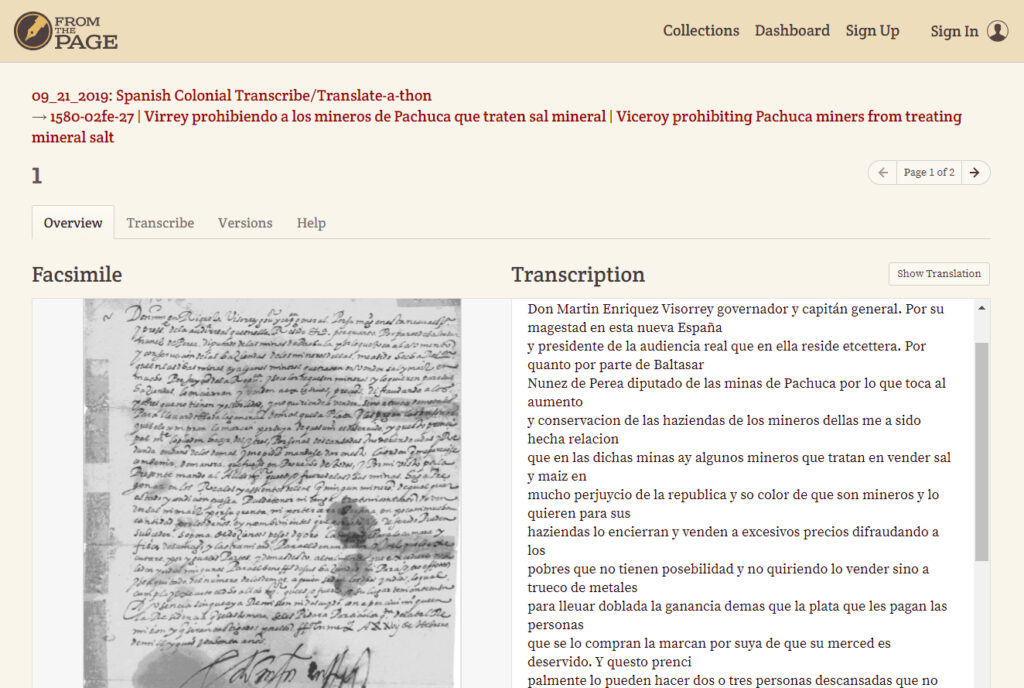
FromThePage, a transcription, translation, and indexing tool, enabled the long-distance collaboration. During a three-hour window, participants browsed the compiled list of manuscripts at both archives and worked together to decipher and transcribe them in the digital scholarship platform. At the halfway point, New Orleans Jazz Museum staff gave us a glimpse of unique colonial cases in their archive, including a declaration of freedom mounted on cloth for a Jamaican man named Santiago Bennet, and broadcast it live through their Facebook page. Following their lead, LLILAS Benson Digital Scholarship (LBDS) staff shared through their Facebook event page some of the Benson’s notable holdings, including its digital collection of geographical descriptions and paintings, or Relaciones Geográficas, of New Spain.
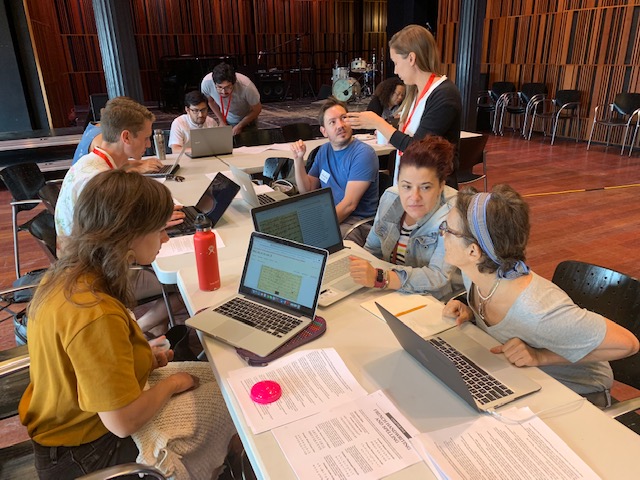
As students, researchers, and community members retraced and rewrote the words of colonial notaries, they were also furthering a long-standing digital initiative of the New Orleans Jazz Museum and Louisiana Historical Center. In the early 2010s, the Museum and Center, along with many other community partners and advocates, accomplished the incredible feat of digitizing some 220,000 pages of notarial records from colonial Louisiana to create a digital collection, www.lacolonialdocs.org. Louisiana Colonial Documents Transcribathon Project Managers Jennifer Long, Michelle Brenner, and Jenny Marie Forsythe culled from this rich resource to create the Museum’s FromThePage collection, which reveals details about enslavement, self-liberation and rebellion, kinship connections, pirate raids, colonial medicine, gambling parties, disputed inheritances, marital strife, and much more.
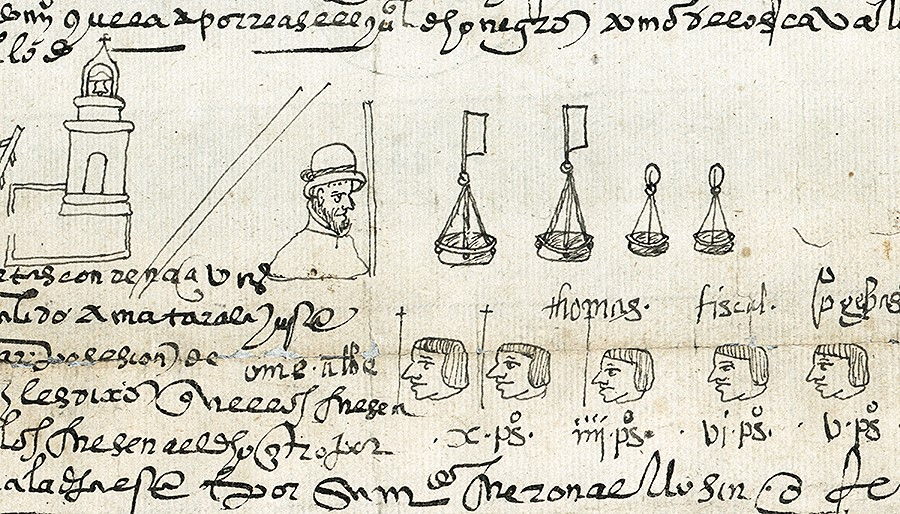
For the joint event, LBDS staff curated a FromThePage collection of documents written by or about indigenous populations in Mexico from the 16th to the 18th centuries in celebration of the International Year of Indigenous Languages. The team had their work cut out for them: the Benson Latin American Collection preserves numerous significant holdings documenting politics, religion, and culture during the Spanish colonial period, including some of the earliest books published in the Americas (1544–1600) and Sor Juana Inés de la Cruz’s vows of profession (1669–1695), to name a few. Throughout the weekend, a small but dedicated group of individuals answered LLILAS Benson’s call and joined online. Collaborators from both coasts of the United States and as far south as Peru collectively volunteered over twenty hours of their time and fully transcribed fourteen documents from the Benson.
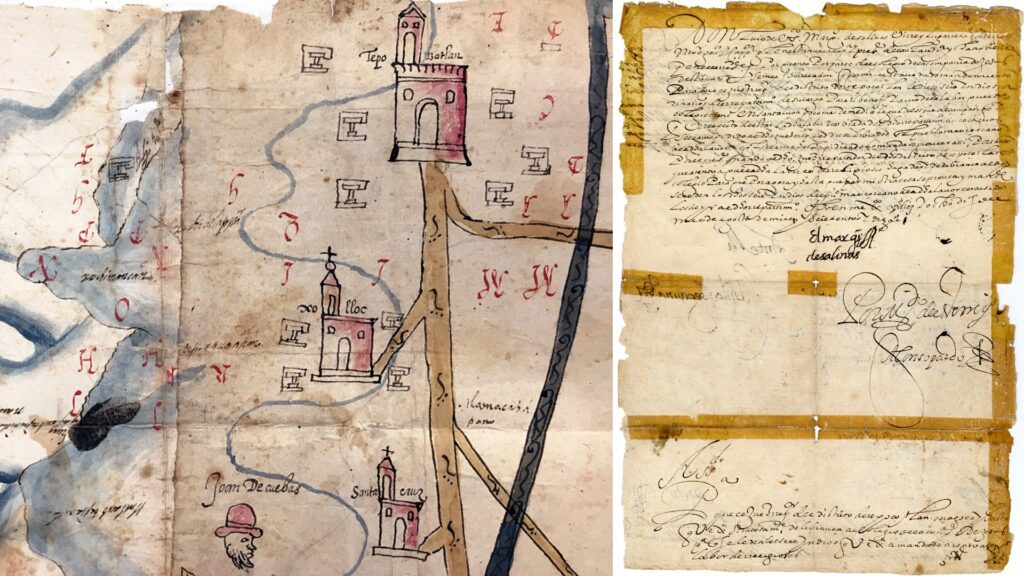
During the weekend of October 19–20, the University of Michigan’s Language Resource Center (LRC) offered some of these transcriptions in their Translate-a-thon, a community-driven event aimed at translating materials for the benefit of the local, national, and international community. A few volunteers—one of whom had done research on colonial Mexico—were thrilled to see documents from the Benson and tackled their translation. Among these was the above decree ordering Tepozotlán’s royal administrator to assign six Natives to work for the Jesuits, underscoring the importance of Native labor in the figurative and literal construction of the Spanish Empire, and the propagation of the Roman Catholic Church. Given the success and Michigan faculty interest in this joint effort, the LRC and the LBDS Office plan to continue the collaboration to broaden the accessibility and use of the Benson’s early modern materials.
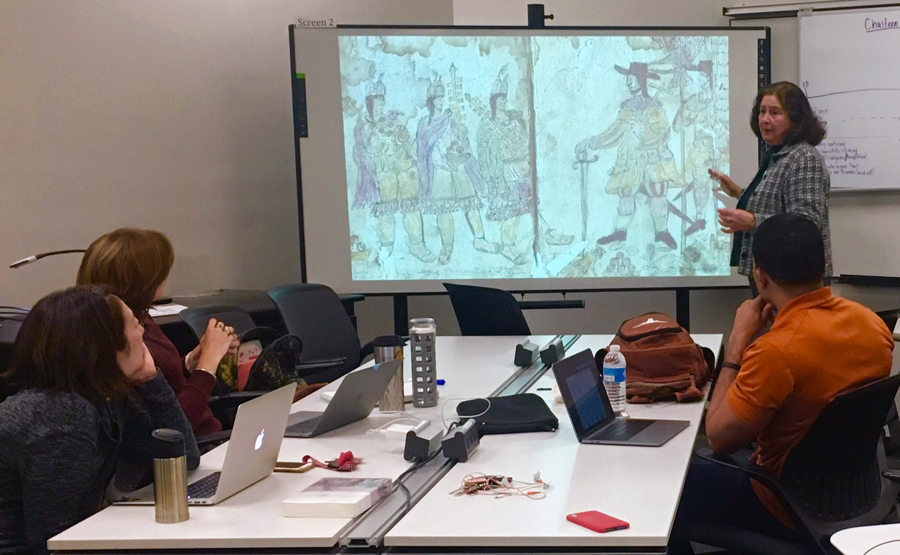
The next step at the LBDS Office is to incorporate these primary sources into Texas high school and UT Austin undergraduate curriculum. Earlier this year, LLILAS Benson initiated a Department of Education Title VI–funded partnership with the College of Education’s Department of Curriculum and Instruction to design World History and Geography lesson plans around the Benson’s rich holdings. Building on these pedagogical efforts, LBDS staff will be translating, contextualizing, and promoting the use of these Spanish colonial documents in undergraduate classes and digital scholarship projects at UT and beyond.
For those who missed the event, you can still join the effort! The Benson’s FromThePage collection will be open for collaborative transcription and translation until Sunday, November 3. Check out the documents list and guide to see how you can help.
Project Participants
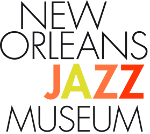
- Greg Lambousy (Director)
- Jennifer Long (Scanning Manager)
- Bryanne Schexnayder (Scanner)
- Michelle Brenner (New Orleans Jazz Museum & Louisiana Historical Center, Reading Room Manager)
- Jenny Marie Forsythe (Louisiana Colonial Documents Transcribathon Project Co-Manager)
- Handy Acosta Cuellar (PhD Candidate, Tulane University; Instructor of Spanish, Louisiana State University)
- Raúl Alencar (Graduate Student, Tulane University)
Click here for more information on Louisiana Colonial Documents Transcribathon Collaborators.

- Julie C. Evershed (Director)
- Translation collaborators: Zhehao Tong, Marlon James Sales, and Olivia Alge
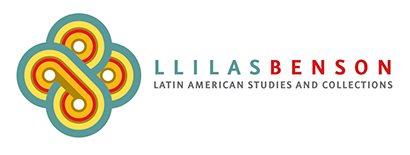
- Albert A. Palacios (Digital Scholarship Coordinator)
- Joshua Ortiz Baco (Digital Scholarship Graduate Research Assistant)
- FromThePage collaborators (usernames): guillaume candela, Ken, Betty Cruz L, Matt H., Carolina Casusol, and Handy1985
About the Authors
Albert A. Palacios is Digital Scholarship Coordinator at LLILAS Benson Latin American Studies and Collections, The University of Texas at Austin. Jenny Marie Forsythe is co-manager of the Louisiana Colonial Documents Transcribathon Project. Julie C. Evershed is Language Resource Center Director at the University of Michigan.

